This is an old revision of the document!
CAMDA 2015 Conference
The 14th CAMDA conference will be held in Dublin, Ireland from Friday, July 10 through Saturday, July 11, 2015. As in recent years, CAMDA runs as a Satellite Meeting of the Annual International Conference on Intelligent Systems for Molecular Biology (ISMB/ECCB).
The emergence of Big Data in the life sciences is considered one of the grand challenges of our time. The interpretation of large data sets is now one of the scientific key techniques in the post genomic era. Still the data analysis bottleneck limits genome scale experiments in providing new medical and biological insights at a larger scale. This trend towards the need for analysing massive data sets is further accelerated by novel high throughput sequencing technologies and the increasing size of biomedical studies.
CAMDA focuses on the analysis and integration of the massive data sets now prevalent in the life sciences. It introduces new approaches and solutions to the Big Data problem, and presents new techniques in the field of bioinformatics, data analysis, and statistics for handling and processing challenging large data sets. By discussing cutting-edge problems and opportunities, the conference offers researchers from a wide range of fields a unique opportunity to benefit from a critical comparative evaluation of approaches to exploiting Big Data in the life-sciences.
This year, the scientific committee of CAMDA has set three data analysis contest challenges:
- A toxicogenomics study with matched NGS and microarray profiles for the response of over 100 rat livers to 27 chemicals with 9 different modes of action.
- A synthetic reference benchmark with built-in truths, spanning multiple NGS, microarray, and qPCR platforms from the FDA SEQC.
- A selection of large-scale cancer studies of less well-understood diseases from the latest release of the International Cancer Genome Consortium (ICGC), including matched gene and microRNA expression profiles from RNA-Seq, somatic CNV, methylation, and protein expression profiles.
Leading scientists from around the world are selected to present their analyses in talks, complemented by poster sessions. Papers based on the submitted extended abstracts submitted for presentation at the meeting are published in the conference proceedings. Starting with 2012, CAMDA has entered a partnership, publishing the CAMDA Proceedings as an open access PubMed indexed special issue of Systems Biomedicine (Taylor and Francis; formerly Landes Bioscience).
As in last years, there will be prizes for the best contributed analysis / presentations. The three prize winners will receive a free one-year subscription to F1000Prime (worth $250) and a free submission to F1000Research (worth $1000). The first prize winner will additionally receive the prestigious CAMDA award.
We cordially invite you to attend this year's CAMDA in Dublin!
Conference dinner – Friday, 10 July 2015, 7:30 pm - 10:00 pm
The conference dinner will take place at Mourne Seafood Bar. The Mourne Seafood Bar Dublin will be serving fresh locally sourced seafood right on the canal basin; delicious food with spectacular views both day and night.
Address:
Mourne Seafood Bar
Millennium Tower, Charlotte Quay
Dublin 4
Keynotes
Des Higgins, PhD
Presentation Title: Making and using extremely large multiple sequence alignments.
Short Bio: Des Higgins is professor of Bioinformatics in University College Dublin, Ireland and has been working on sequence alignment and molecular evolution since the mid 1980s. He originated the widely used Clustal package and continues to develop and maintain multiple sequence alignment algorithms and software. He also works on the analysis of high throughput genomics data, especially in the application of multivariate analysis methods for data integration. He has published more than 130 peer-reviewed articles in bioinformatics, sequence alignment and genomics with an h-index of 54.
Christopher E. Mason, PhD
Presentation Title: Leveraging short and long reads for optimal RNA-Sequencing with CAMDA data set #1.
Abstract: To sequence more or not to sequence more? That is the question. Is it better to suffer the slings and arrows of outrageous haplotypes or not? Here we use the SEQC datasets to titrate reads lengths at varying scales to discern the impact of read length on quantification, splicing detection, and detection efficiency, and we show that for expression-based goals, reads generally do not need to go beyond 50bp. However, for splicing detection, longer reads significantly improve one's ability to classify and detect isoform changes. Finally, we comment on the significance of low-abundance isoforms that can reveal new roles of subsets of RNA. These results can help plan experimental design for both large and small-scale RNA-seq studies.
Short Bio: Christopher E. Mason completed his dual B.S. in Genetics and Biochemistry from University of Wisconsin-Madison in 2001, his Ph.D. in Genetics from Yale University in 2006, and his post-doctoral training at Yale Medical School, while also holding a fellowship at Yale Law School. In 2009, Dr. Mason founded his laboratory as an assistant professor at Weill Cornell Medical College in the Department of Physiology and Biophysics and at the Institute for Computational Biomedicine. Professor Mason also holds an appointment in the Tri-Institutional Program on Computational Biology and Medicine between Cornell, Memorial Sloan-Kettering Cancer Center and Rockefeller University and he also has an appointment at the Weill Cornell Cancer Center and the Brain and Mind Research Institute. In 2013, he won the Hirschl-Weill-Caulier Career Scientist Award. In 2014, he won the Vallee Foundation Young Investigator Award, the CDC Honor Award for Standardization of Clinical Testing, and he was just named as one of the “Brilliant Ten” Scientists in the world by Popular Science magazine. In 2015, he became the first WorldQuant Foundation Research Scholar, was recently promoted to associate professor, and his work has been featured across the world in over 300 media outlets.



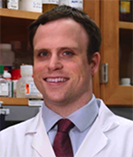


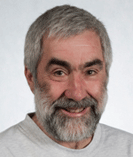
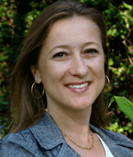


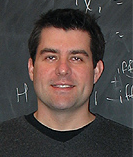
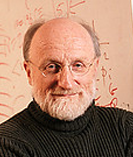






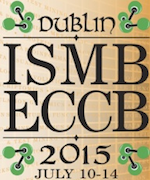




STAY CONNECTED
Tweet